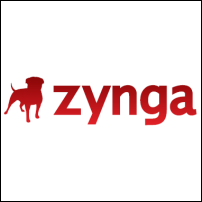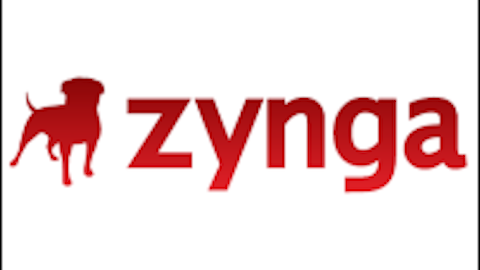On July 1, Zynga Inc (NASDAQ:ZNGA) announced that Don Mattrick, a Microsoft Corporation (NASDAQ:MSFT) executive currently responsible for the firm’s Xbox console business and other entertainment activities, will be replacing Mark Pincus as Zynga’s chief executive officer–though Mr Pincus will remain the company’s chairman and chief product officer. This transition in management brings with it a great deal of hope regarding Zynga’s uncertain future.
Some background
Zynga Inc (NASDAQ:ZNGA) is a video-game developer that was founded in 2007 and went public in 2011. If you’ve ever played “Mafia Wars” or “Farmville” on Facebook Inc (NASDAQ:FB), you’ve used Zynga’s products. These games can be addictive. People love playing them. In fact, data-tracking website comScore reports that more users play Zynga Inc (NASDAQ:ZNGA)’s mobile games than the next five mobile game developers combined.
Recently, the company confirmed the layoff of 18% of its workforce, or about 520 employees. The company says that this will result in $70 million to $80 million in annualized pre-tax savings. That’s good news for investors who had witnessed their shares drop 68% from the IPO price level. Despite those savings, its guidance for second-quarter earnings calls for a loss of between $39 million and $28.5 million
A troubled business model
There are a few pending problems with Zynga Inc (NASDAQ:ZNGA)’s business model. The first problem is that users can play for free. You never have to spend a penny to play the company’s games if you don’t want to, and only 5% of Zynga users pay to play its games. It has 63 million daily active users but it still loses money. In fact, the company generated $1.3 billion in revenue and still hasn’t made a penny of profit.
The second issue at hand is Zynga Inc (NASDAQ:ZNGA)’s dependency on Facebook. In its latest annual report, Zynga stated that “We are highly reliant on Facebook Inc (NASDAQ:FB) and the Facebook platform for a significant portion of our revenue.” That’s a minor understatement. The majority of Zynga’s profits comes from Facebook. Even the name “Facebook” is mentioned 313 times in Zynga’s 2012 annual report. In reward for the trouble, Facebook retains 30% of Zynga Inc (NASDAQ:ZNGA)’s earnings generated on its platform, which equates to 15% of Facebook Inc (NASDAQ:FB)’s total revenue. That’s a problematic busines knot for both companies. Microsoft Corporation (NASDAQ:MSFT), for example, generates just 5% of consolidated operating income from the Entertainment and Devices business segment (which includes Xbox and video games). That’s a much healthier diversity in earnings.
The third issue revolves around the company’s business moat. To say that Zynga doesn’t have an economic moat is the understatement of the year. Every micro company with a bunch of programmers can bring the next best game to the world. In fact, this is actually happening right now. A private company named King.com is coming out with blockbuster games like “Candy Crush Saga.” This little darling is played by a startling 15 million people on Facebook each day, making it the most popular application on the social network. It’s also the top-grossing app in Apple’s and Google’s stores. So that’s a the first lesson in economic moat for Zynga. But competition can also come from within. Facebook, whose vast online platform helped propel Zynga to the top of the casual-gaming leader-board, is exploring how to boost the number of companies developing games for it. I have a feeling that at some point, Facebook will run Zynga to the ground only to buy it later for pennies and use its gaming platform in-house.
Possible solutions
As to the earnings dilemma, I have no doubt in my mind that at some point Zynga will have to transform to a ‘pay-and-play’ model. It can’t just go on offering its games for free. I’m sure that at least part of its many gaming addicts won’t mind forking over a couple of dollars for a monthly subscription. There’s nothing wrong with that. In addition, Zynga must implement what has worked so well for Facebook and Microsoft Corporation (NASDAQ:MSFT). Facebook has built a great advertising-based business model that’s highly successful because it has gathered significant information about their users. Microsoft has built great advertising through its Kinect–through Kinect 2.0 you will be able to see and hear what is going on in front of the camera. If two friends are talking about where to get some food, a Domino’s Pizza advertisement might appear in their game in real-time.
Zynga must penetrate the advertising segment and add flashy advertising to its games. I can think of a dozen different companies that would love to target Zynga’s gaming youth.
As for the economic moat, gaming companies don’t and never will have an economic moat in the traditional sense. Their “moat” is their ability to come out with new blockbuster games, and to maintain older ones. If Zynga is able to come out with a single blockbuster game once a year, it will do just fine. Perhaps Mr Mattrick, who helped increase the number of Microsoft’s Xboxes in homes from 10 million to 80 million, will help to add that spice of innovation.
The Fool looks ahead
With massive layoffs, over-dependency on Facebook, and no net income to talk about, Zynga is between a rock and a hard place. Nevertheless, if its new CEO is able to amend its business model for the better, it will be the turnaround of the century. With many disappointed investors, the burden of proof is solely on Zynga’s shoulders.
Shmulik Karpf has no position in any stocks mentioned. The Motley Fool recommends Facebook. The Motley Fool owns shares of Facebook and Microsoft. Shmulik is a member of The Motley Fool Blog Network — entries represent the personal opinion of the blogger and are not formally edited.
The article Will Zynga Transform Itself Into a Profitable Company? originally appeared on Fool.com is written by Shmulik Karpf.
Copyright © 1995 – 2013 The Motley Fool, LLC. All rights reserved. The Motley Fool has a disclosure policy.





